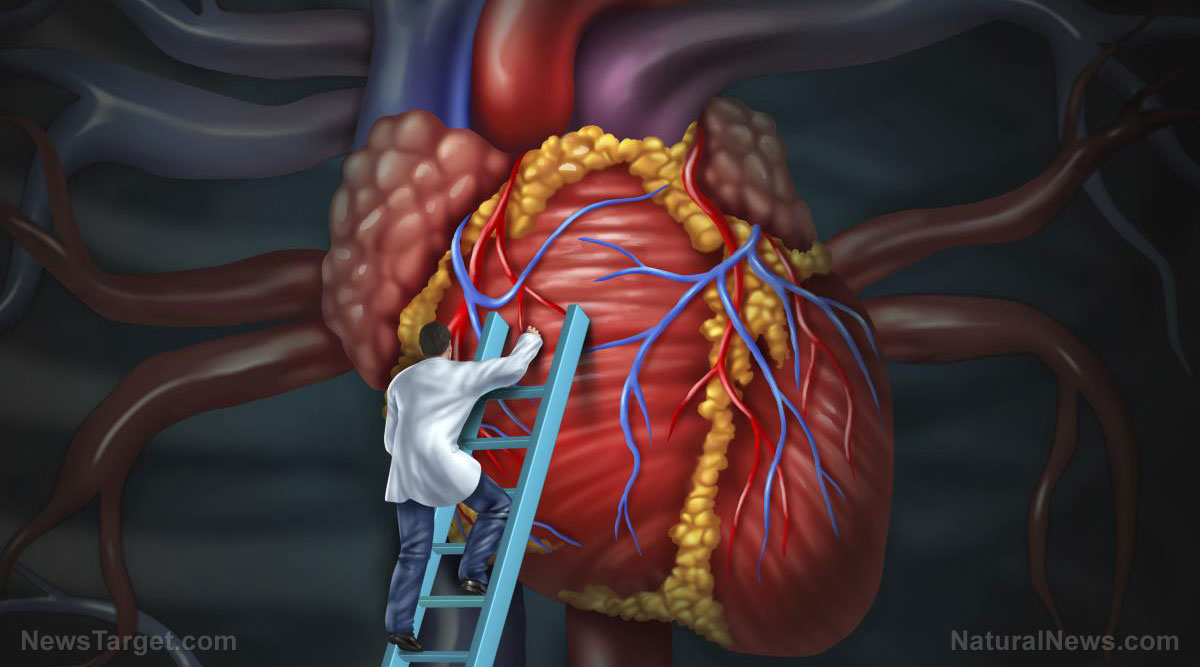10 Possible causes of dizziness and how to address them
11/21/2019 / By Darnel Fernandez

Dizziness is a common term used to describe feelings of lightheadedness, wooziness, and unsteadiness. It can also refer to the false sense that you or your surroundings are spinning or moving. People who are suffering from recurring or severe dizziness know how much of an unpleasant experience it is and how it can interfere with daily life.
Wrapping your head around dizziness
People who experience dizziness may feel many different sensations, including feeling faint or losing balance. There may also be times when dizziness is accompanied by nausea, vomiting, or actual fainting. Those experiencing these symptoms for extended periods should seek assistance from a healthcare provider.
Dizziness has many possible causes, including environmental factors, temporary physical changes, and underlying medical conditions. Below is a list of 10 possible causes of dizziness.
Vertigo
Many people often interchange the terms “vertigo” and “dizziness,” but these two conditions have slight differences. Dizziness refers to the feeling of wooziness or disorientation. On the other hand, vertigo is associated with the feeling that the room you’re standing or sitting in is spinning or tilting.
Vertigo is often caused by problems in the inner ear, including Meniere’s disease, labyrinthitis, and benign paroxysmal positional vertigo. One way to treat the symptoms of vertigo is by the Epley maneuver, wherein one follows a set of steps to be done before bed every night until the symptoms subside.
Motion sickness
The constant motion when inside a moving vehicle can disrupt the inner workings of the ear, causing nausea and dizziness. People can alleviate the symptoms of motion sickness through simple means like drinking cold water or simply getting a little more air. The symptoms usually go away almost immediately as soon as the person touches solid ground.
Migraines
Migraines aren’t your typical headaches. These are a type of headache that cause pulsing or throbbing pain on one side of the head. Some people experience dizziness before the pain of the migraine sets in. You can relieve these symptoms by taking herbal remedies like peppermint oil.
Low blood pressure
A sudden and sharp drop in blood pressure can lead to lightheadedness and dizziness. This usually occurs when one stands up too quickly after sitting for some time. Taking certain medications like antidepressants can also affect your blood pressure. One way to regulate blood pressure is to follow healthier lifestyle habits like eating a balanced diet and exercising more often.
Cardiovascular disease
Heart conditions, such as congestive heart failure, and risk factors for heart disease, like arterial plaque buildup, can cause dizziness. People can also experience dizziness before and after a heart attack or stroke. Reduce your risk for heart disease by adding healthier foods, like kale, to your diet.
Iron deficiencies
Not having enough iron in your body can lead to anemia, a condition wherein there is not enough oxygen in the blood. This can cause shortness of breath, fatigue, and even dizziness. The easiest way to treat this is by consuming more iron-rich foods. You can also take iron supplements if you really need the boost.
Low blood sugar
Also known as hypoglycemia, this condition occurs when the blood’s glucose levels fall below the normal level. This can happen if you consistently skip meals or regularly consume alcohol. Dietary changes can be made to improve one’s blood sugar levels to relieve hypoglycemia’s various symptoms, which include loss of balance and headaches.
Autoimmune inner ear disease
As previously mentioned, vertigo (and dizziness) are caused by problems in the inner ear. Autoimmune inner ear disease (AIED) refers to any condition wherein the immune system attacks the inner ear. This can lead to hearing loss in one or both ears, as well as dizziness.
Stress
Chronic stress can release hormones that affect various systems in the body, including the respiratory and cardiovascular systems. These hormones can raise heart rate and cause the blood vessels to narrow. The responses to the hormones could also lead to dizziness. One way to reduce your stress levels is by doing meditation.
Anxiety
Anxiety and stress usually go hand in hand. Stressful situations like taking an important exam or going through an emotional situation can cause anxiety. Some people can experience anxiety attacks simultaneously with dizzy spells, while others can have their anxiety attacks triggered by a sudden onset of dizziness. You can quell the effects of anxiety by being more active and getting more sleep.
In most cases, dizziness will go away on its own once the underlying causes have been dealt with. Browse through Health.news for more stories on the symptoms and treatments of similar conditions.
Sources include:
Tagged Under: anemia, anxiety, dizziness, dizziness causes, headaches, hypoglycemia, iron deficiency, lightheadedness, loss of balance, low blood pressure, migraines, motion sickness, natural cures, prevention, remedies, stress, vertigo
RECENT NEWS & ARTICLES
HeartDisease.News is a fact-based public education website published by Heart Disease News Features, LLC.
All content copyright © 2018 by Heart Disease News Features, LLC.
Contact Us with Tips or Corrections
All trademarks, registered trademarks and servicemarks mentioned on this site are the property of their respective owners.




















